9 min read
Electric boilers: An introductory guide for homeowners
How we heat homes is changing and the journey towards reducing carbon emissions is driving it. Gas boilers will be banned from new build developments...
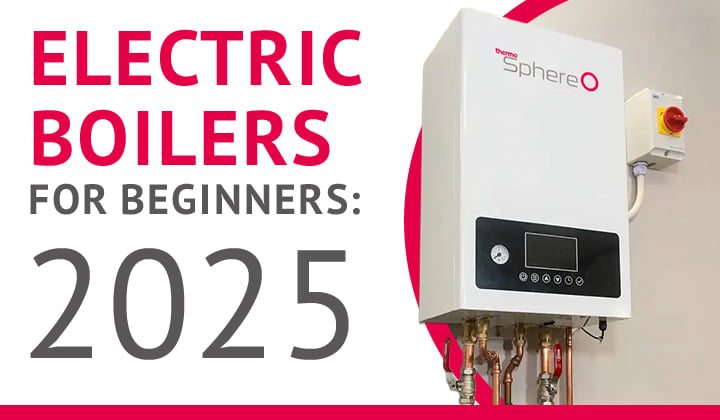
If you’ve been hearing more about electric boilers recently, you’re not alone. With the UK government still trying to push towards decarbonised heating, the gradual attempt to phase out new gas boiler installations and the rising interest in simpler, greener alternatives, electric boilers are stepping firmly into the spotlight. But what exactly are they, how do they work and most importantly, are they right for your home? This guide is here to walk you through the basics, the essentials you need to know if you’re considering making the switch.
 Think of an electric boiler as a modern twist on a familiar idea. Instead of burning gas or oil, it uses electricity to heat water for your radiators, taps, or underfloor heating. Water flows past an electric heating element, warms up quickly and is then piped where it’s needed. The beauty lies in its simplicity. No combustion, no gas connection and no flue poking out of your wall. Just plumb in, wire into an electricity supply and go.
Think of an electric boiler as a modern twist on a familiar idea. Instead of burning gas or oil, it uses electricity to heat water for your radiators, taps, or underfloor heating. Water flows past an electric heating element, warms up quickly and is then piped where it’s needed. The beauty lies in its simplicity. No combustion, no gas connection and no flue poking out of your wall. Just plumb in, wire into an electricity supply and go.
The UK’s energy landscape is undergoing a huge transformation. Gas has long been cheaper, but electricity is becoming increasingly green as more of it comes from wind, solar and even nuclear. As of October 2025, Ofgem’s energy price cap puts electricity at around 26.35p per kWh, compared with 6.89p per kWh for gas. Yes, gas is still cheaper per unit, but that isn’t the whole story. Smaller, well-insulated homes don’t need huge amounts of energy to stay warm and with electricity’s efficiency and low maintenance, the overall balance looks far more appealing. Plus, there’s the bigger picture: fewer emissions, less reliance on fossil fuels and a heating system that’s aligned with the UK’s eventual net zero goals.
⚡💸How to save money on your electric heating💸⚡
 If you’re weighing up your options for heating and wondering whether an electric boiler might be the right fit, it helps to know the kinds of homes and lifestyles they’re best suited to. Electric boilers aren’t a one-size-fits-all solution, but in the right setting they can be the simplest and most future-ready choice. Here are some situations where it makes perfect sense:
If you’re weighing up your options for heating and wondering whether an electric boiler might be the right fit, it helps to know the kinds of homes and lifestyles they’re best suited to. Electric boilers aren’t a one-size-fits-all solution, but in the right setting they can be the simplest and most future-ready choice. Here are some situations where it makes perfect sense:
Flat dwellers: If you live in an apartment with limited space, an electric combi boiler can deliver hot water and heating without needing a hot water cylinder, a gas connection or a flue.
Small homes: One- or two-bedroom houses with modest heating and hot water demands are a great match. You get reliable warmth without overspending on system size or installation.
Off-grid properties: If your home isn’t connected to the gas network, an electric boiler removes the hassle of oil deliveries or LPG tanks.
Garden rooms and annexes: A micro boiler can heat standalone spaces, perfect for home offices, guest rooms or studios.
Eco-conscious households: If reducing your carbon footprint is top of your list, electric boilers align well with renewable electricity tariffs and solar PV systems.
Those who value simplicity: If you’d rather not worry about gas checks, flues or complex maintenance, the straightforward design of electric boilers will appeal.
![]() Going electric comes with a host of advantages that make it especially appealing in 2025. First and foremost, there’s the simplicity. Electric boilers are compact and straightforward to install, you don’t need to worry about flues, condensate pipes or ensuring your installer is gas-safe certified. This means installation is often cleaner, quicker and in some cases cheaper upfront than swapping out a traditional gas boiler.
Going electric comes with a host of advantages that make it especially appealing in 2025. First and foremost, there’s the simplicity. Electric boilers are compact and straightforward to install, you don’t need to worry about flues, condensate pipes or ensuring your installer is gas-safe certified. This means installation is often cleaner, quicker and in some cases cheaper upfront than swapping out a traditional gas boiler.
Safety is another major plus. With no combustion involved, there’s no risk of carbon monoxide leaks which gives you peace of mind and eliminates the need for annual gas checks. When it comes to efficiency, electric boilers excel. Virtually 100% of the electricity that goes in is converted directly into heat, so there’s none of the wasted energy you’d normally see drifting off up a flue. They’re also the perfect fit for smaller homes such as flats, one-beds or annexes where space is limited and keeping things simple really matters. Micro Electric Boilers also offer temperature limiting, which is especially useful in settings like care homes where hot water is capped at 43°C for safety. With an MEB you can set and control those limits easily, combining safety with efficiency in one compact unit.
Finally, let’s not forget future proofing. Because the UK’s electricity grid gets greener every year, your electric boiler effectively becomes more sustainable over time without you having to lift a finger.
 Electric boilers are clever pieces of kit, but they’re not without their boundaries. One thing to be aware of is suitability for larger homes. While a well-specified electric boiler can comfortably serve a small flat or a modest house, once you start talking about several bathrooms and heavy hot water use, the power demand can become too much for a standard household electrical supply. In the future, network operators are expected to make bigger domestic supplies more widely available, but for now this remains a limiting factor.
Electric boilers are clever pieces of kit, but they’re not without their boundaries. One thing to be aware of is suitability for larger homes. While a well-specified electric boiler can comfortably serve a small flat or a modest house, once you start talking about several bathrooms and heavy hot water use, the power demand can become too much for a standard household electrical supply. In the future, network operators are expected to make bigger domestic supplies more widely available, but for now this remains a limiting factor.
Warranty is another point of comparison. Gas boiler manufacturers often dangle extended cover periods as a selling point, sometimes stretching well beyond five years. By contrast, electric boilers typically come with shorter warranties (5 to 7 years). The flip side is that their simpler design means fewer moving parts, less maintenance and often fewer issues over their lifetime — but it’s worth noting the difference if you’re weighing up options.
Finally, there’s the question of running costs. Electricity is still more expensive per unit than gas, which means that in larger properties with high demand, monthly bills can be higher. Over time that gap may close as the energy market evolves and the grid leans further on renewables, but it hasn’t disappeared yet. That said, many homeowners are choosing to pair their electric heating with solar panels or other renewable energy sources. Doing so can bring running costs down considerably and adds another layer of sustainability to the home.
One of the biggest considerations with electric boilers is the available electrical supply. Most UK homes have a maximum of 100 amps, and unlike other appliances, electric heating doesn’t allow for diversity — meaning your electrician has to assume all the heating could be running at once. This can put pressure on the supply, especially with larger boilers. For instance, a 12kW unit will draw more than half of that capacity on its own. In properties with higher heating or hot water demand, this loading challenge may make other options more practical.
Hot water demand is another key factor, particularly in homes with baths. While a ThermoSphere electric combi boiler can certainly run a bath, it won’t be the fastest fill. If long soaks are non-negotiable, our advice is to opt for an electric system boiler paired with an indirect hot water cylinder. This setup provides higher flow rates and stored hot water, so the tub fills more quickly and the experience feels much closer to what you’d expect from a traditional system.
 When it comes to comparing electric boilers with gas, here’s what you need to know:
When it comes to comparing electric boilers with gas, here’s what you need to know:
What about running costs? Here’s where things can get confusing. On paper, gas looks cheaper. But factor in annual servicing, the cost of installing or repairing flues and the reality that smaller, newer homes don’t guzzle energy, the numbers start to even out. If you live in a compact property, your monthly bills might not look dramatically different with an electric boiler, even compared to 'cheaper' gas. If you’ve got solar panels or you’re on a renewable tariff, the benefits get even stronger. Put simply, electric boilers make most sense where hot water demand is modest. They’re not the cheapest option for everyone, but they are the right option for many.
🔔👊 Electric vs Gas 👊🔔
We couldn’t put together a beginner’s guide on electric boilers without sneaking in a little plug for our own range. It wouldn’t be very British to boast, but we do think our boilers are rather good — and it would be rude not to introduce them. After all, designing heating solutions that are easy to choose, easy to install and easy to live with is exactly what we’re all about.
 This is our most popular model, and for good reason. An Electric Combi Boiler delivers heating and hot water on demand, no hot water cylinder required. If you live in a smaller property and don’t fancy sacrificing cupboard space to a water tank, this could be your match. It’s compact, quiet and efficient. And unlike gas versions, you don’t need to worry about a flue or gas safety checks, so it can be positioned pretty much anywhere. It’s a genuine alternative if you’re saying goodbye to a gas combi.
This is our most popular model, and for good reason. An Electric Combi Boiler delivers heating and hot water on demand, no hot water cylinder required. If you live in a smaller property and don’t fancy sacrificing cupboard space to a water tank, this could be your match. It’s compact, quiet and efficient. And unlike gas versions, you don’t need to worry about a flue or gas safety checks, so it can be positioned pretty much anywhere. It’s a genuine alternative if you’re saying goodbye to a gas combi.
Beyond its core functionality, our combi boiler is designed to make life as simple as possible. It comes fully pre-wired and pre-plumbed, so installers can set it up quickly without unnecessary fuss or surprises. Every connection has been carefully planned to reduce installation time and make the process neat and efficient, which means less disruption to your home. Once installed, the system is fully adjustable, allowing you to fine-tune both heating and hot water output to your exact preferences. This means you can control temperatures in different parts of your home, set schedules to match your lifestyle and ensure comfort without wasting energy. In short, it’s designed to give maximum flexibility with minimal effort, combining convenience, efficiency and complete control for a tailored heating experience.
 If your household hot water needs stretch a little further — perhaps you want to run a shower while someone else does the washing up — the System Boiler could be a better choice. Paired with a hot water cylinder, it provides a more generous supply of hot water, while still enjoying the low-maintenance benefits of electric. Unlike combis, system boilers heat water and store it in a hot water cylinder so that it’s available when you need it. The heated water is then distributed throughout the home, meaning you can run multiple taps or showers without a noticeable drop in performance. The trade-off is that you’ll need to dedicate some space for the cylinder so they aren’t quite as compact as a combi. To give extra peace of mind, our system boiler comes with a market leading five-year warranty, one of the longest available for an electric boiler. It’s a reflection of the confidence we have in its build quality and reliability, meaning you can enjoy long-term reassurance as well as everyday comfort.
If your household hot water needs stretch a little further — perhaps you want to run a shower while someone else does the washing up — the System Boiler could be a better choice. Paired with a hot water cylinder, it provides a more generous supply of hot water, while still enjoying the low-maintenance benefits of electric. Unlike combis, system boilers heat water and store it in a hot water cylinder so that it’s available when you need it. The heated water is then distributed throughout the home, meaning you can run multiple taps or showers without a noticeable drop in performance. The trade-off is that you’ll need to dedicate some space for the cylinder so they aren’t quite as compact as a combi. To give extra peace of mind, our system boiler comes with a market leading five-year warranty, one of the longest available for an electric boiler. It’s a reflection of the confidence we have in its build quality and reliability, meaning you can enjoy long-term reassurance as well as everyday comfort.
 Though small in size, Micro Electric Boilers (MEBs) pack a powerful punch, designed for precise applications. Whether you want to provide hot water to an extension, or heat a single underfloor heating circuit, the micro boiler delivers warmth efficiently and without the expense of a larger system.
Though small in size, Micro Electric Boilers (MEBs) pack a powerful punch, designed for precise applications. Whether you want to provide hot water to an extension, or heat a single underfloor heating circuit, the micro boiler delivers warmth efficiently and without the expense of a larger system.
These compact, clever units are small but mighty. They're perfect for smaller homes, flats or any property where space is limited. Popular in other countries, such as Australia, they remain less common in the UK — but their benefits are hard to ignore. One standout feature is their self-modulating technology.
Self-modulating means the boiler adjusts its power output dynamically, according to the actual demand. Instead of running at full capacity every time you use a tap or switch on the heating, it provides only the energy needed to reach and maintain the desired temperature. This reduces energy waste, lowers running costs and helps extend the boiler’s lifespan. When paired with solar panels, they become an even greener choice, using clean energy to cover every day heating and hot water needs efficiently.
🔥♨️Jump to: Combi♨️🔥 🔥♨️Jump to: Micro♨️🔥 🔥♨️Jump to: System♨️🔥
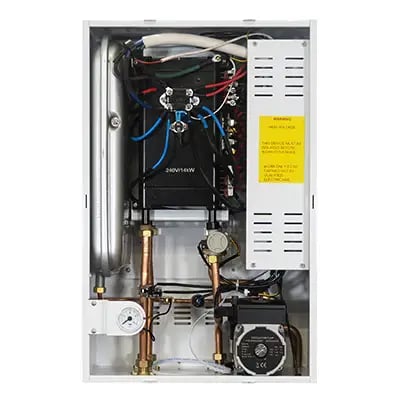 “They’re just oversized kettles.” Not quite. Yes, the heating principle is similar, but the engineering is much more advanced. An electric boiler is designed to provide consistent heating, safely and efficiently, throughout your home.
“They’re just oversized kettles.” Not quite. Yes, the heating principle is similar, but the engineering is much more advanced. An electric boiler is designed to provide consistent heating, safely and efficiently, throughout your home.✨🔮The future of domestic water heating🔮✨
Is an electric boiler right for you? Here’s the simplest way to look at it. If you’re in a flat or a small home and you want a safe, low-maintenance, environmentally friendly heating option, an electric combi boiler could be perfect. An electric system boiler is a great option if you only need to supply hot water for heating, or if you have high hot water demand and have space to install an indirect hot water cylinder alongside your shiny new electric boiler. They’re especially appealing if you’re off the gas grid or want to avoid the disruption of new gas connections. Plus, with the UK’s direction of trying to travel firmly towards net zero, you’ll be ahead of the curve.
Thinking about making the switch? You can request a boiler quote directly from ThermoSphere or contact one of our team for tailored advice. If you’re weighing up the different types of electric boiler, we’ll help you choose the right fit for your home and your lifestyle.
💻📝Request a quote📝💻 ❓❓Is the combi boiler right for you❓❓
Electric heating made easy
Or contact us via the website, or give one of the team a call on 01622 689440. Find out more about ThermoSphere by reading of one of our other blogs here.
If you want to find out more about some of the other fun stuff we've been up to, follow us on our social media:
LinkedIn: @thermosphere
YouTube: @thermosphere
Facebook: @thermosphere
Tiktok: @_thermosphere
Instagram: @_thermosphere
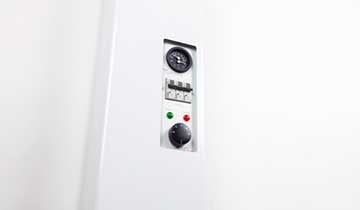
9 min read
How we heat homes is changing and the journey towards reducing carbon emissions is driving it. Gas boilers will be banned from new build developments...
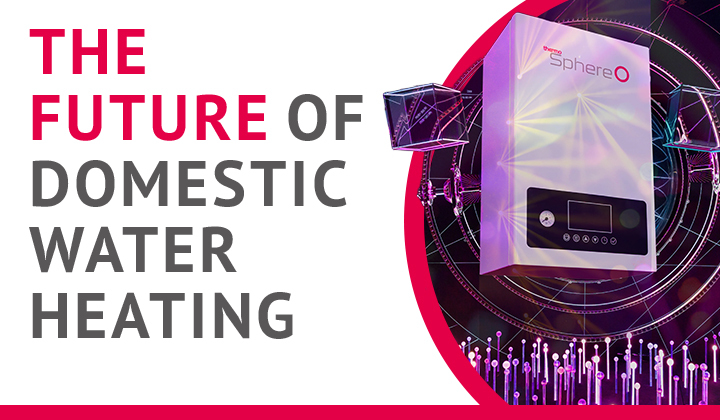
11 min read
For over a century, gas boilers have quietly powered homes across the UK, providing the warmth and hot water we often take for granted. But in 2025,...
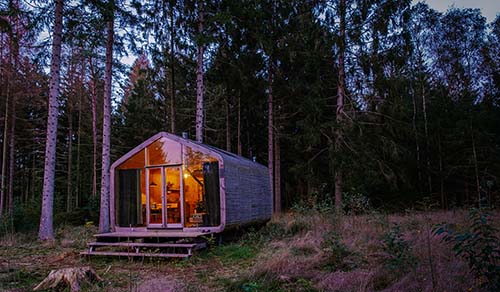
8 min read
If you live in a home that is off the gas grid, you’ll know that there are a wide range of options available to choose from to heat your home. There...